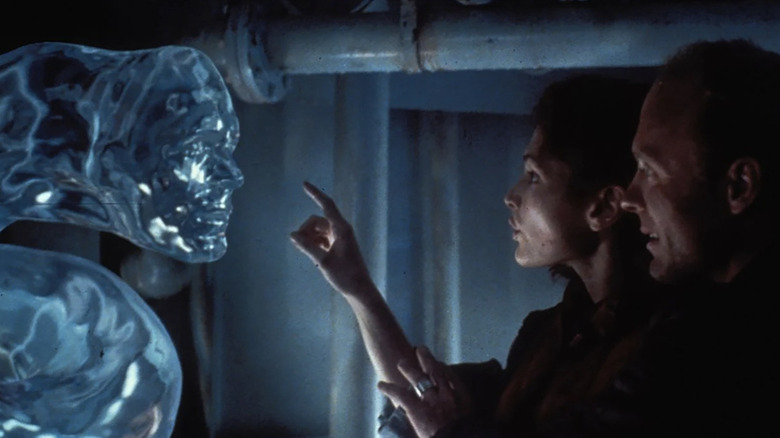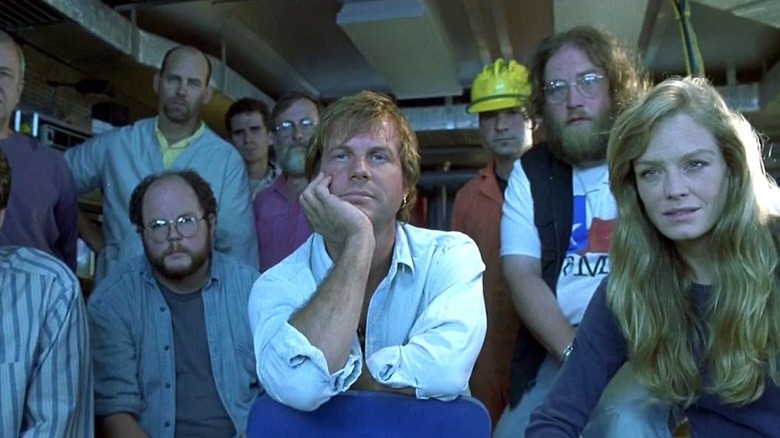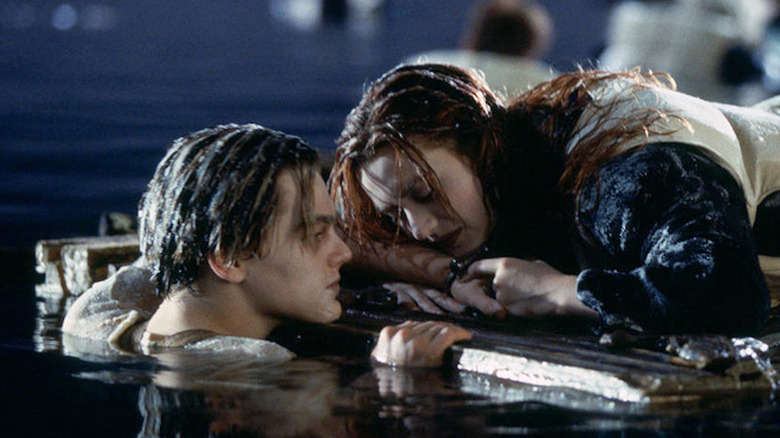How The Abyss And IMAX Documentary Titanica Led James Cameron To Titanic
(To celebrate "Titanic" and its impending 25th-anniversary re-release, we've put together a week of explorations, inquires, and deep dives into James Cameron's box office-smashing disaster epic.)
James Cameron was not quite the King of the World, or Hollywood for that matter, when he announced in 1995 that he was making an epic drama based on the doomed voyage of the RMS Titanic. He was viewed primarily as an action specialist and, in tandem with collaborators like Stan Winston and Dennis Murren, a visual effects pioneer. "The Terminator" was a B-movie classic that exploded into the mega-blockbuster of "T2: Judgment Day." In between those two movies, Cameron had hit the blockbuster A-list with "Aliens" and nearly lost it all with the pricey commercial disappointment of "The Abyss."
But it was at the bottom of that three-mile-deep trench that Cameron arrived at the project that would vault him to the rarefied, epic air of old-school filmmakers like D.W. Griffith, Cecil B. DeMille, and David O. Selznick.
Cameron's journey began on the Orange County, California campus of Fullerton College, where he studied physics and English for all of one year before dropping out to pursue a vague dream of working in movies. He found his purpose after a screening of George Lucas' "Star Wars," but had to settle for working in the cut-rate filmmaking factory of Roger Corman's New World Pictures. Cameron learned how to be thrifty here, which served him well on "The Terminator," but his restless curiosity and considerable intellect quickly drew him into the choppy waters of big-budget dream weaving. He wanted to take moviegoers to very real places on this planet that were as alien to them as the deepest reaches of outer space. This brought him to the wreckage of the Titanic.
A technical challenge that had to be surmounted
In a 1997 interview with Charlie Rose, Cameron revealed the Titanic bug bit him while researching remotely operated submersibles for "The Abyss" (i.e. Big Geek and Little Geek). He was meeting with famed oceanographer Robert Ballard, who discovered the rusting remains of the Titanic off the coast of Newfoundland in 1985.
According to Cameron, "[Ballard] still had not gotten over Titanic, and he wanted to show me his tapes of how they discovered it, and so on. So this little infection started right there. I had the germ, and I didn't know it. It was incubating."
Cameron's interests are many, and his curiosity is insatiable. That germ took root, and it grew like kudzu. As he told Rose:
"[I]'ve always loved history, especially the antiquities: ancient Rome and Greece [...] but all history, really. And so I started reading up on the history of Titanic, not just the physicality of the wreck and the high technology of finding it, but ... you know, who were these people? And what did they experience? And it became to me such a fascinating story, as it has for many people who get sucked into the vortex of Titanic."
There was one last bit of inspiration lurking in the deep for Cameron, and it sparked his interest in the IMAX format.
Groundbreaking visual effects and a very old-fashioned love story
Stephen Low's 1992 documentary "Titanica" was one of the early IMAX sensations, and having weathered the production of "The Abyss," Cameron was fired up about getting into the open sea and poking around the legendary ship's wreckage via submersibles. Cameron knew he was flickering around a combustible flame. He was obsessed with Ballard's Titanic footage, and prayed, "Please god, let it not be a film about Titanic because that's going to be a lot of work."
Cameron had no choice but to take the next step. He flew to Russia to meet with the technicians who'd created the submersibles that brought Low's crew down to the briny depths of the Titanic's resting place, and the film began to take shape in his imagination. He had the history and he had the tech — now he had to write the story.
Cameron's "Titanic" is an unabashedly sentimental historical drama that traffics in the hoariest of clichés, but it connects on a primal level. It's a film about two young adults who yearn for a better life on the other side of the Atlantic. There is a transference of desire on that wooden panel; Jack not only saves Rose, he imbues her with purpose. Most of Cameron's films are about near-death epiphanies. They're about making the most of the time you have. This is Cameron's core belief, and that's why "Titanic" is his masterpiece.


